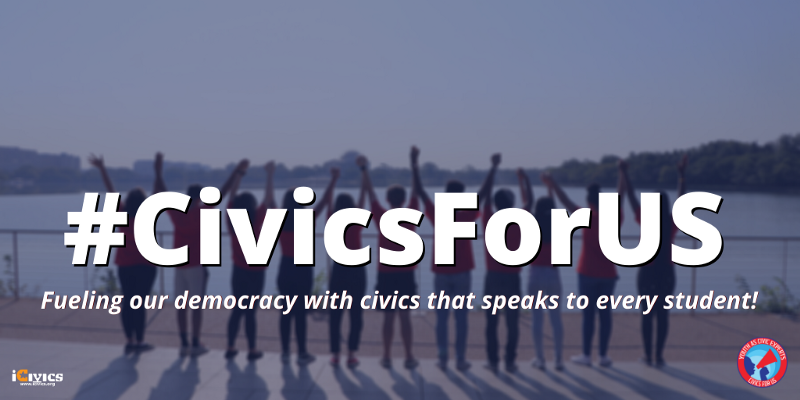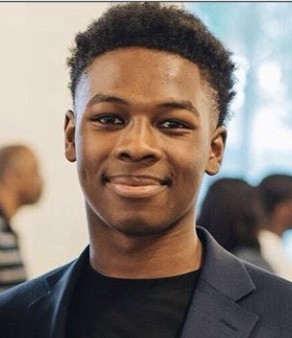
I clicked the “submit exam” button, then the “leave meeting” button, and sat back in my chair in stunned silence. As I gazed around my childhood bedroom, my eyes moving from old toys to old trophies, I realized that I had just finished my first year of college. A year of my life had passed by in a blur, and I wasn’t sure what to make of that.
This time last year, I had just finished my time as a member of the inaugural Equity in Civics Youth Fellowship. I spent the year learning about the movement for equity in civics, speaking about my high school civic education experiences, and creating a campaign raising awareness about inequity in civics education. I was finishing my very first op-ed for the fellowship and preparing for college with the expectation that the pandemic would be over by the time classes started. I was overwhelmingly hopeful about my future and the country’s future.
But as I let my eyes wander around my room, I somberly accepted that I had changed — that the world had changed. The beliefs I held, the hopes I had, were gone.
Change is a tricky thing to nail down.
Sometimes it happens all at once, and there’s an event you can point to and say: “this is the moment when everything changed.” We’ve had our share of world-altering events in the past year: the onset of the pandemic, the death of George Floyd, the 2020 presidential election, the Capitol insurrection…there are too many to name. These events have altered the way young people engage with one another and with our political institutions.
Generation Z is staring down the barrel of climate change, economic turmoil, systemic racism, and eroding trust in political institutions — and the past year’s events have only reminded us of that fact. As a result, my generation is more politically engaged than other generations and holds less faith in our democracy. We’re less partisan, but mainly because we’ve developed reservations about both political parties. We are questioning the future of American politics, lamenting the destruction of the environment, and expressing fears about the death of liberalism. My generation’s politics have become motivated by angst.
More often than not, change occurs gradually. It’s the sum of unnoticed events happening here and there — the subtle cultural shift, the slight break in political precedent, the modest change in the economy. Generation Z’s political beliefs did not take shape in the past year or the past twenty years. It was the sum of decades of policy decisions that created the society in which my peers and I grew up. We can draw threads from the civil rights era through Nixon, Carter, Reagan, Clinton, the Bushes, Obama, and Trump. We can identify how not taking action on climate change in the 80s has led us to an environmental crisis today or how the punitive criminal justice policy of the 90s created the very issues the current racial justice movement works to address. We can see how the dot-com bubble prompted the rise of social media, which ushered in an era of increasing political polarization and extremism. Past policies, and the changes they created, have shaped the environment my generation has grown up in. They have influenced the way we view the world and the politics we have.
But why does this change matter?
In his podcast episode, New York Times Columnist Ezra Klein discusses how periods of continual violence shaped the politics of the 1970s and 1980s. He argues that because violence permeates nearly every aspect of life, periods of prolonged violence make community members desperate for change, leading them to support “more punitive, authoritarian and often racist policies, with consequences that shape communities decades later.” What Klein’s argument shows us is that the politics of desperation can be dangerous. When we put our community’s back against the wall, we give ourselves no option but to look for drastic solutions. All too often, those drastic changes create immense harm and bring forth very little good.
America has placed young people’s backs against the wall. An unstable country has been handed to my generation, and it’s unclear how (or if) we’ll manage to stabilize it. Now, our nation must find a way to support young people not to fall prey to the politics of desperation.
Civics education is one way to do so. Teaching civics is one way to counteract the fear and angst of the current era with knowledge and reason. If we commit to teaching students how to use American’s political institutions to create long-lasting positive change, we can avoid the trap of political expediency. If we push students to develop and continually examine their political beliefs, we can avoid the trap of extremism. If we encourage students to turn civic engagement into a lifelong habit, we can avoid the trap of apathy.
I spend a lot of my time sitting in my bedroom chair, thinking about what will change next. I don’t know. But I do know this: as long as we equip my generation with comprehensive civics knowledge, we’ll be able to handle whatever change comes our way.
 Caleb Dunson is a freshman at Yale University. He was a member of the inaugural iCivics Equity in Civics Youth Fellowship and currently serves as a CivXNow Fellow. Read more from Caleb in his op-ed in the Chicago Tribune: After George Floyd’s death, remedy for apathy is equity in civics education and his thought in Inside Higher Ed: Tortured by Acceptance.
Caleb Dunson is a freshman at Yale University. He was a member of the inaugural iCivics Equity in Civics Youth Fellowship and currently serves as a CivXNow Fellow. Read more from Caleb in his op-ed in the Chicago Tribune: After George Floyd’s death, remedy for apathy is equity in civics education and his thought in Inside Higher Ed: Tortured by Acceptance.
Disclaimer: The views expressed in this blog reflect the views of the author[s] alone and do not reflect the views of iCivics. iCivics does not endorse, verify or represent the accuracy, completeness or reliability of any opinion, statement, recommendation or other information written by a third party and published on the CivXNow blog.


 See All
See All